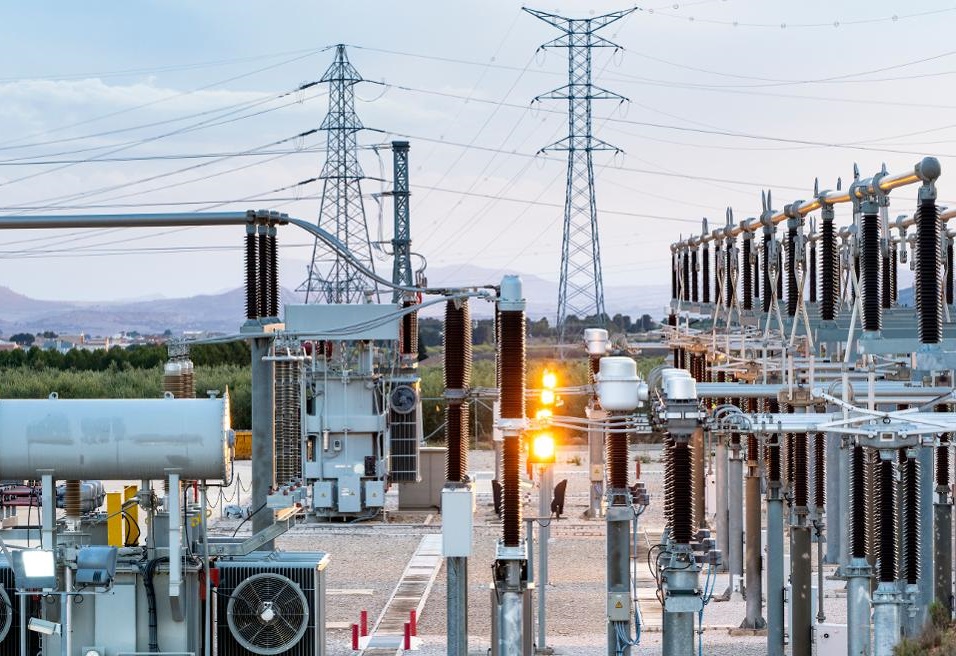Business
Nigeria Needs More Investment To Achieve 195,400Mw Energy Deficit

Business
MoneyPoint Empowers Pharmacists With Payment Solutions
MoniePoint Inc. a digital financial firm in Nigeria, has said it is empowering community pharmacists across the country with innovative payment solutions to improve access to drugs.
The financial firm said it had also provided loans for pharmacists under the aegis of the Association of Community Pharmacists of Nigeria (ACPN) to drive healthcare delivery in the country.
MoniePoint in a release titled, “Inside Nigeria’s community pharmacies: How Moniepoint drives healthcare access with payments and funding”, has reaffirmed its commitment to providing digital payment solutions to improve health outcomes in Nigeria.
The release examined how community pharmacies play a crucial role as vital access points for medical care in Nigeria, especially in areas with limited hospital or clinic access.
According to the release, the ACPN National Chairman, Ambrose Igwekwam, highlighted the critical role played by community pharmacies in Nigeria’s healthcare system over the years.
Igwekwam, however, expressed concerns over the challenges confronting the nation’s pharmaceutical industry which he said was hindering access to affordable medicines.
The pharmacist listed poor infrastructural systems, power, transportation, regulatory bottlenecks, importation dependency, and limited research opportunities as major challenges facing the pharmaceutical sector.
He also stressed the need for robust collaborative efforts with institutions like Moniepoint to strengthen the sector.
“As Nigeria continues to grow, improving local pharma manufacturing to meet the demands of this growth presents a key opportunity for us all.
“There is also the African Continental Free Trade Area Agreement, which is expected to boost our industry, especially when we start producing our drugs locally, which will provide the much needed foreign exchange from exports.
“We are also seeing advancements in digital health and technology which would hopefully deepen the practice of e-prescription in Nigeria”, the ACPN boss said.
Corlins Walter
Business
Embrace AI, CIIN Urges Insurance Operators
In order to enhance customer service and streamline operations, the Chartered Insurance Institute of Nigeria (CIIN) has called on stakeholders in the insurance industry to embrace Artificial Intelligence (AI).
The President of the institute, Yetunde Ilori, made this call at the 2024 Office Representatives Committee (ORC) Workshop, organised by the institute, with the theme “AI and the Future of the Insurance Industry”, in Lagos.
Ilori at the event, emphasised the importance of AI adoption, noting that it was not a threat to jobs but rather a tool to improve efficiency across the insurance sector.
“It is not about AI taking over our jobs, but about us using AI to simplify processes and give maximum satisfaction to all the customers we serve whether as underwriters, brokers, loss adjusters, or in educating our members”, she said.
The workshop, which brought players in the insurance sector together, aimed to address how AI could be leveraged to transform business processes and improve customer interactions.
The Chairman of the ORC, Monica Nwachukwu, underscored the role of AI in modernising the industry, adding, “AI can automate customer and claims processes, allowing insurers to provide faster and more efficient services to their customers”.
She explained how AI could help extract data from legacy systems, enhancing decision-making processes.
“By integrating AI with APIs, insurers can feed valuable data into AI solutions to improve operations and customer service”, she added.
In his address, the Managing Partner of A4S and Training Heights, Orlando Odejide, stressed the need for companies to align their strategies with future technologies like AI, especially as they prepare for 2025.
“Any organisation that wants to grow into the future must have its strategic plan in place. If your strategy for 2025 is not ready, it should be done by October”, he advised.
He encouraged participants to think critically about how AI could be integrated into their business models to ensure they remain competitive.
“The idea is for you to use this workshop as a platform to think about your organization and how AI can help streamline your processes and improve growth”, Odejide noted.
Business
NASRDA Reassures On Strengthening Nigeria’s Space Capability
In order to gain global respect and recognition, the National Space Research and Development Agency (NASRDA) has reaffirmed its determination to pursue its goal in ensuring that Nigeria’s space capabilities are recognised on the world stage.
The agency also reaffirmed its commitment to positioning Nigeria as a key player in the global space economy.
In a statement by the Director of Media and Corporate Communications, Dr. Felix Ale, NASRDA revealed that the Director-General of the agency, Matthew Adepoju, emphasised this during recent engagements at the 79th United Nations General Assembly and the Nigerian Association of Chambers of Commerce, Industry, Mines and Agriculture (NACCIMA) and Global Alliance Business Association international conference in Michigan, United States.
The statement noted that Adepoju outlined a forward-thinking agenda, stressing the importance of Nigeria’s space programme as a leader in research, exploration, and technological innovation.
“Our goal is to ensure that Nigeria’s space capabilities are recognised on the world stage.
“We must foster collaborations with global space agencies to enhance our satellite capabilities and technological infrastructure”, he stated.
The NASRDA boss said the agency is focusing on enhancing satellite capabilities, expanding international collaborations, and leveraging space science for national development.
He said NASRDA will have no stone unturned in pursuit of excellence, ensuring the agency secures the necessary resources and recognition to propel it forward.
“The relationships we build today will pave the way for tomorrow’s advancements in space science.
“Innovation and progress thrive in an environment built on collaboration and inclusivity”, he stated.
He emphasised that with the support of the government, international partners, and a dedicated team, NASRDA is poised to make significant strides in the evolving global space landscape.
“We are on the brink of a new era for Nigeria’s space agency. Together, we will ensure our nation stands out in the global space economy”, he said.
Corlins Walter



